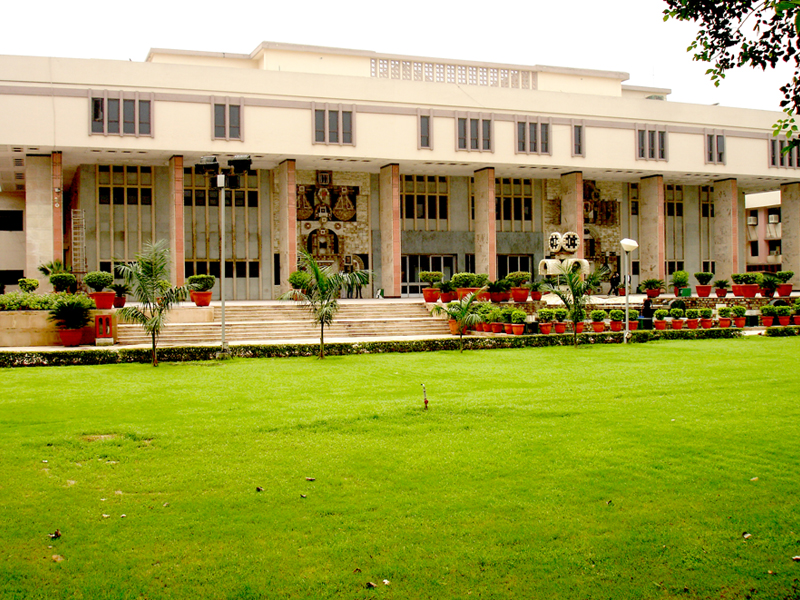The Delhi High Court stated that the grounds for patent illegality apply in cases where there is a violation of substantive law, the Arbitration Act, or its rules. However, this does not apply to every legal error.

The Delhi High Court emphasized that “patent illegality” does not apply to every error made by the arbitral tribunal. The Court was reviewing a petition under Section 34 of the Arbitration and Conciliation Act, 1996, which challenged an Arbitral Award. The Single-Judge Bench, led by Justice Neena Bansal Krishna, dismissed the petition, stating, “…the issues raised by the petitioners do not fit into the categories of patent illegality or fundamental breach of Indian Law.” Senior Advocate Dhruv Mehta represented the petitioners, while Senior Advocate Saket Singh represented the Respondent Company, Bunge India Pvt Ltd.
The petitioners were promoter Directors of Amrit Bansapati Company Limited (ABCL). They signed Non-Compete and Business Transfer Agreements with the respondent and received a Non-Compete Fee, which led to the complete transfer of ABCL’s edible oil business to the respondent. However, the respondent violated the Agreements by not taking responsibility for tax demands and notices, despite agreeing to do so. When the petitioners contested the assessment Order, the Assessing Officer ordered a deposit of over Rs 9 crore for Service Tax and interest/penalty. Due to a disagreement over the Agreements’ terms, the petitioners started Arbitration proceedings to clarify the Agreements. The CESTAT later annulled the Assessment Order, and after a year, the Arbitral Tribunal issued a Nil Award, stating that since the demand was quashed, deciding on the petitioners’ Claims was no longer relevant.
One key argument from the Petitioners was that ignoring the terms of their Claims and the related documents led to an unfair and clearly illegal Award, which contradicts the rule of law and Public Policy in India. They challenged the Award on the basis that it relied on irrelevant factors. The Bench pointed out that the parties had agreed in their Non-Compete Agreements (NCAs) that no service tax applied to the Agreement. If a Notice was issued to the petitioners, it was their responsibility to respond, which they did successfully. The Notice for service tax was based on the assumption that the NCA was subject to it. The Bench stated, “The petitioners may have incurred overhead costs, expenses, and interest for the pre-Appeal deposit since the Notice was addressed to them, but these costs cannot be charged to the respondent under any law.”
According to the Bench, the Notices were directed specifically at the petitioners, and they could not shift their responsibility onto the respondents. Additionally, the Agreements clearly stated that service tax was not applicable to NCA fees. “The respondent cannot be held accountable for the expenses incurred in defending the Notices before CESTAT due to the mistakes of a third party,” it noted. Since the Petitioners failed to demonstrate any clause that would make the Respondent liable for any imposed costs, whether justified or not, the Bench concluded that the Arbitral Tribunal was correct in issuing a Nil Award.
The Bench rejected the petitioners’ claims that the Tribunal exceeded its authority regarding the contested Award or that it was based on irrelevant factors and lacked jurisdiction. The assertion that the Tribunal failed to address the contractual liability of either party was also deemed invalid. Regarding the payment liability, the Bench stated, “Since the demand was found to be unsustainable, the issue of who should pay the alleged Service Tax became irrelevant, as noted by the Arbitral Tribunal.” The Bench clarified that challenges under Section 34 of the Act, 1996 are limited, adding, “The ground of patent illegality applies when there is a violation of Indian substantive law, the Arbitration Act, or relevant rules.” Further explaining, the Bench noted, “While the Supreme Court in State of Chhattisgarh & Anr. vs. SAL Udyog Pvt. Ltd. (2022) 2 SCC 275 indicated that an award ignoring the clear terms of the agreement suffers from patent illegality, it also referenced Associate Builders (supra), stating that ‘patent illegality’ does not cover every legal error made by the arbitral tribunal. Additionally, ‘patent illegality’ does not pertain to legal violations unrelated to public policy or interest.” Therefore, since the petitioners’ arguments did not fit into the categories of patent illegality or fundamental breach of Indian Law, the Bench dismissed the Petition.
Cause Title: Naresh Kumar Bajaj v Bunge India Pvt Ltd [Neutral Citation: 2024:DHC:8134]
Appearance:
Petitioners: Senior Advocate Dhruv Mehta, Advocates Anubhav Ray, Gayatri Verma and Abhishek Respondent: Senior Advocate Saket Singh and Advocate Sameer Patel







